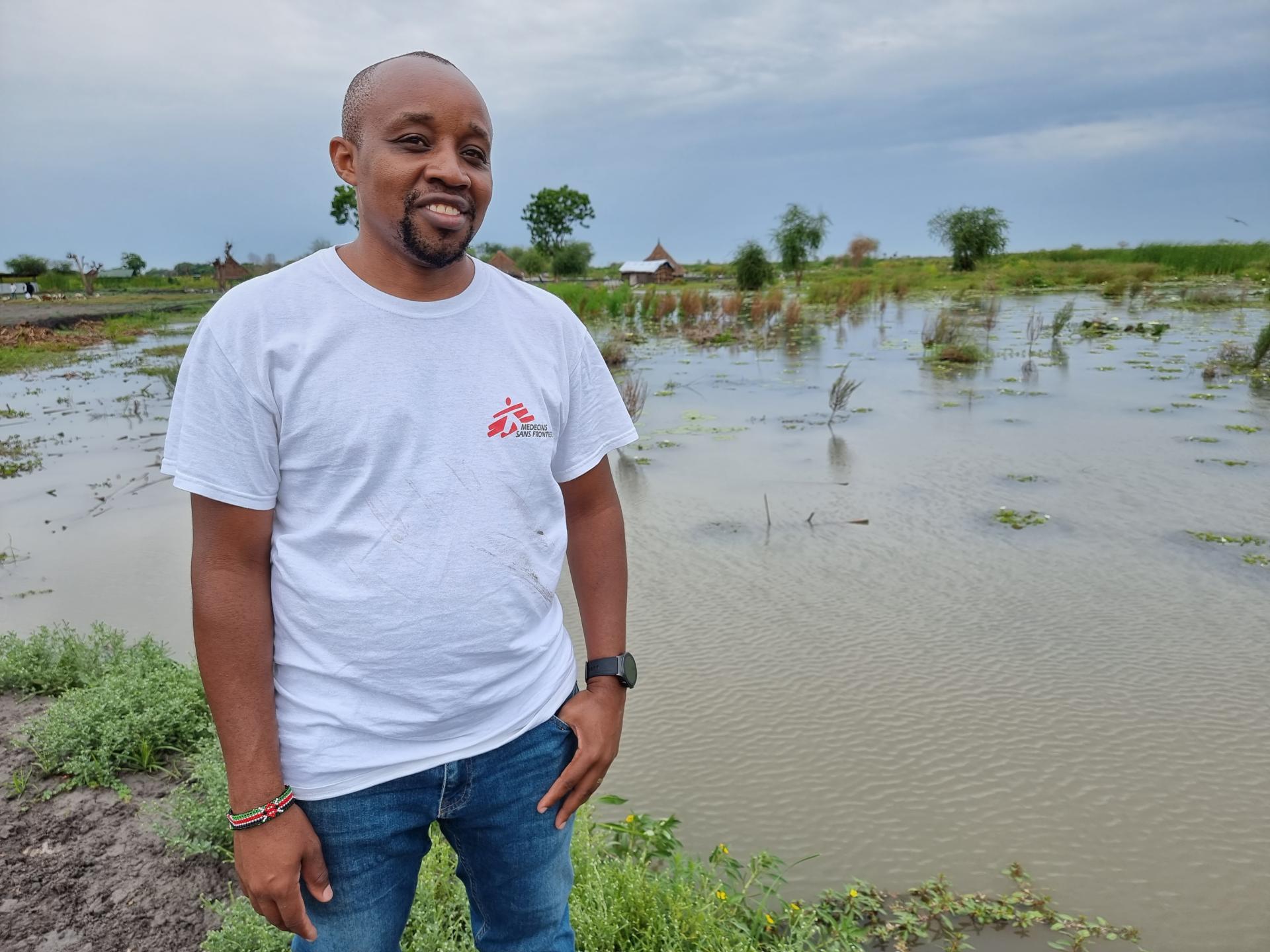“Being passionate about my career as a nurse and wanting to utilise my nursing skills led me into humanitarian work for the benefit of humanity. I first heard about MSF back in 2011 from my colleagues, just after we were done with our internship. I later did some research into MSF: what it does as well as how it works. I foresaw room for my career growth and started looking out for opportunities with the organisation.
In 2019, I was fortunate to get a job with the MSF Academy for Healthcare. I was in charge of implementing the Basic Clinical Nursing Care curriculum for nurses and midwives in South Sudan.
Since then, I have worked with MSF in South Sudan- in Juba, Old Fangak, Bentiu and Malakal. The main medical emergencies MSF are responding to are malnutrition; infectious disease outbreaks, such as measles and cholera; traumatic and violence-related injuries; water and sanitation issues; as well as respiratory diseases such as COVID-19.
MSF works in remote areas with marginalised communities. With limited qualified health staff in these areas, MSF provides on-the-job training for people so that they can carry out medical interventions safely. The MSF Academy aims to professionalise and formalise this training. We engage tutors who are qualified and have experience in both mentorship and tutorship.
The MSF Academy is like a college within a project. We have classrooms, bedside teaching and a pool of staff working as tutors, whom I supervise and mentor. Since joining the MSF Academy, I’ve seen the impact the training has made on our healthcare staff and the patients we care for by improving the quality of care we provide.
Despite working within a hospital setting, we run the MSF Academy just like any other learning institution. On a normal day, I go to the classrooms to make sure that tutors are ready and go through the session plans to make sure that classes have started. I also visit the hospitals to see how the medical tutors are integrating with the rest of the team, while supporting the clinical mentors in their day-to-day activities in the wards.
One of the things that I’m greatly happy with is seeing how the MSF Academy helps improve things in the facilities where we work, at the same time empowering our learners. Back in 2020, when we were struck by the COVID-19 pandemic, it was hard for staff to move from one project to another. Despite this challenge, most of our staff who were also our learners stood out and showed their strength by managing the facilities.
In 2021, Agok hospital in South Sudan had a go-slow due to renumeration concerns, which forced the hospital to pause its services for a while. Through the management, people stepped up and took on different roles within the hospital. I was personally the scrub-nurse for surgery and, together with the other staff, we were able to save lives.
My most proud moment was in early June this year when the first cohort of students graduated in Old Fangak. That’s when I realised the magnitude and impact of the training we have been offering. It was even more fulfilling seeing the community celebrate and support the graduates.
As a nurse educator, I’m now more motivated to transfer and share my knowledge and skills with upcoming nurses so that they are able to give better care to their patients and help save a life somewhere.”
